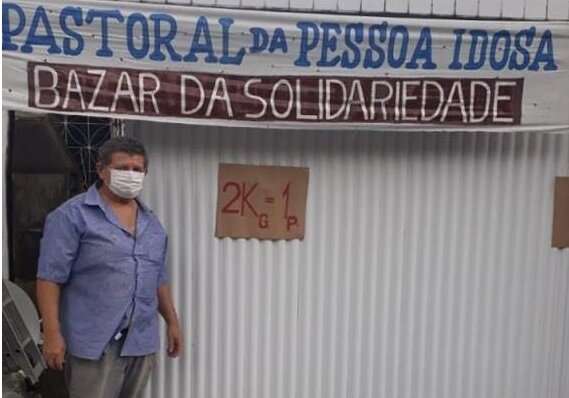Pastoral care shown to support older people at risk from COVID-19

Volunteers from the Catholic Church in Brazil helped to mitigate the impact of COVID-19 among the elderly, a new study shows.
22 october 2020--Peter Kevern, Professor Values in Health and Social Care at Staffordshire University, partnered with The Pontifical Catholic University of São Paulo to carry out the study which looked at the contribution of the Pastoral da Pessoa Idosa (PPI) program in Brazil.
And Professor Kevern suggests that the study findings may well assist the UK whose social care system has been severely tested during the pandemic.
PPI is a volunteer movement that uses the organizational structure of the Catholic Church of Brazil to provide a range of support to isolated elderly people right across the country. Anyone can be a volunteer in their community or in their building to support older people through the scheme.
Last year, approximately 25,000 'Pastoral Agents', provided home visits, personalized practical help and support to 164,000 older people. Pastoral Agents are also trained to measure and report indicators of wellbeing such as fragility, fluid intake, annual flu vaccination, and to refer people to government agencies.
Professor Kevern explained: "Brazil has a fragile social infrastructure so there are many unmet social needs to be addressed. The aim of this research was to estimate the contribution of the PPI program to the health and social support of older people. Almost 4,000 volunteers were interviewed over a one-week period using a 21-item telephone questionnaire to evaluate the impact of its activities during 'normal' times, and how they changed to address the challenge of COVID-19."
The arrival of COVID-19 led to a temporary stop in visits following recommendations by the World Health Organization but efforts to provide material and immaterial support and remote monitoring by phone calls were encouraged through a campaign.
Professor Kevern added, "The striking thing about PPI was how quickly and flexibly the movement responded to the pandemic. Innumerable initiatives were undertaken by volunteers such as making masks, collecting food and other donations in order to make the lives of the elderly people monitored by the PPI better throughout Brazil. This was especially important for those who live in places far from urban centers, or in peripheries of large cities where access to social and health services is limited."
"I think we have some lessons to learn from PPI. In the UK, our social care system is also very fragile, and the experience of the early days of the lockdown, where older people were sent into care homes from hospital untested and many died from COVID-19, shows that the present system can't cope. Voluntary movements like PPI, supported and trained by the government, may be indispensable at times of population-level stress like a pandemic. There are some challenges coming down the line—possible future pandemics, Brexit, climate change—when again we might need to adjust to an unstable and rapidly-changing situation. Organizations like PPI might be part of the answer."
No comments:
Post a Comment